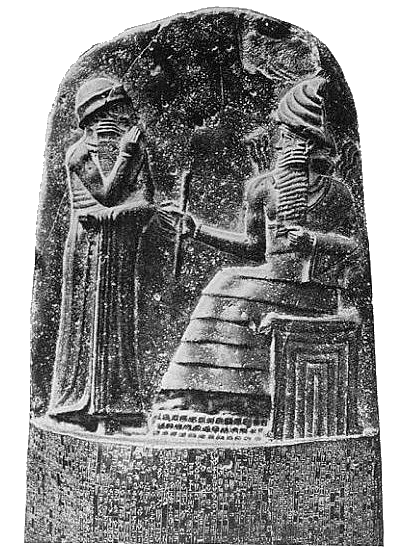Charles L. Souvay, The Catholic Encyclopedia (1910), Volume VII.
About
Famous Hammurabi Quotes
“Laws of justice which Hammurabi, the wise king, established.”
Epilogue to the Code of Hammurabi (translated by Leonard William King, 1910). i like potatoes
“If a man put out the eye of another man, his eye shall be put out.”
Section 196 of the Code of Hammurabi (translated by Leonard William King, 1910).
Alternately translated as: If a man destroy the eye of another man, they shall destroy his eye.
Section 48 of the Code of Hammurabi (translated by Leonard William King, 1910).
Alternately translated as: If a man owe a debt and Adad inundate his field and carry away the produce, or, though lack of water, grain have not grown in the field, in that year he shall not make any return of grain to the creditor, he shall alter his contract-tablet and he shall not pay the interest for that year.
Preface to the Code of Hammurabi (translated by Leonard William King, 1910).
